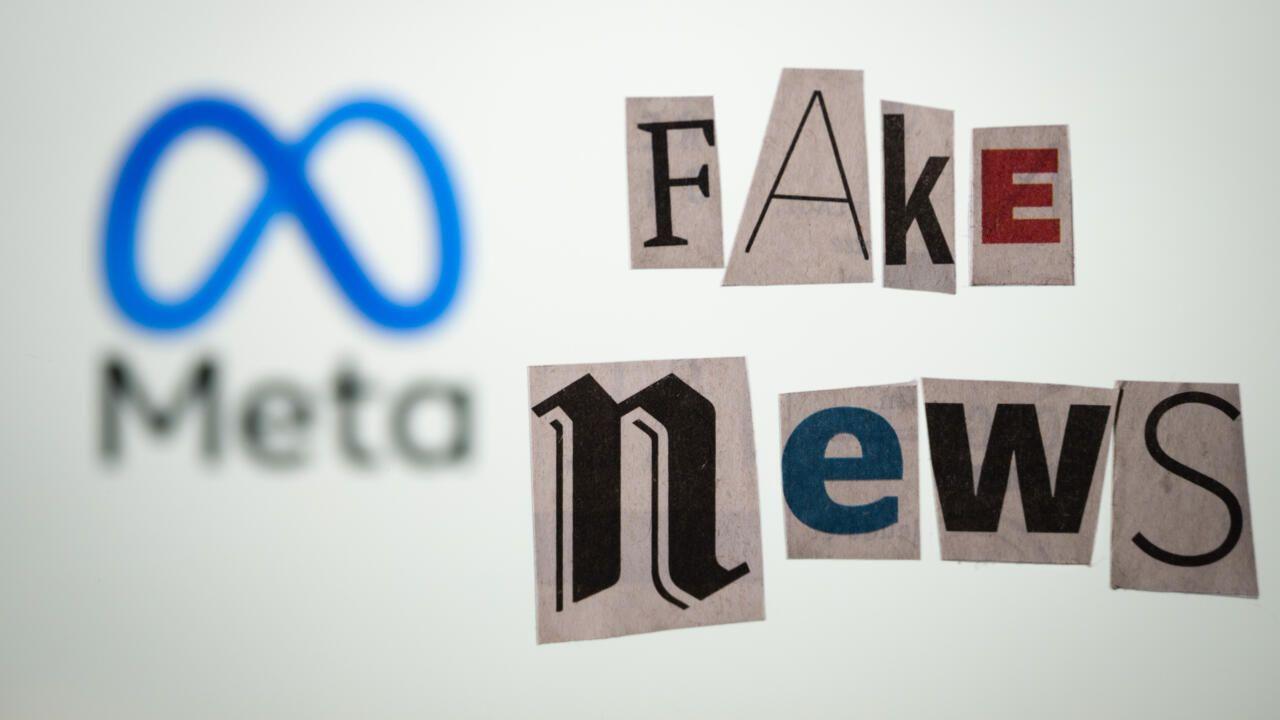Deepfake Political Ads Surge on Meta Platforms, Raising Scam Concerns
2 Sources
2 Sources
[1]
Deepfake political scam ads surge on Meta platforms, watchdog says
Washington (AFP) - Scammers are among the top political ad spenders on Meta's platforms, using deepfake videos of American politicians -- including President Donald Trump -- to promote fake government benefits, a watchdog group said Wednesday. The nonprofit Tech Transparency Project said it identified 63 scam advertisers that collectively spent $49 million on Facebook and Instagram, often targeting seniors with ads promoting fake stimulus checks, government spending cards and healthcare payments. The ads have reached tens of thousands of the platforms' users. "The findings show how scammers are taking advantage of advances in artificial intelligence technology, public confusion around the status of social safety net programs, and lax Meta content moderation to target new victims," TTP said in a report. "Meta is allowing this activity even though it prohibits scams and says it invests in scam prevention to keep users safe," it added. Meta did not immediately respond to AFP's request for comment. TTP's report quoted a Meta statement saying that the company would "invest in building new technical defenses" as scammers "constantly evolve their tactics to try to evade detection." According to Meta's rules, advertisers who seek to run political ads in the United States have to undergo a special authorization process, which involves submitting an official ID such as a driver's license along with a US mailing address. TTP said all of the 63 scam advertisers -- who accounted for over 150,600 political ads -- had their advertisements removed by Meta within the past 12 months for violating the tech giant's policies. Still, nearly half of them continued to advertise as of Tuesday. Meta appeared to disable 35 ad accounts, but only after they ran dozens -- and in some cases hundreds -- of ads. Six of the accounts spent over $1 million before they were disabled or deleted, the report said. One advertiser identified by TTP -- called the Relief Eligibility Center -- - ran an ad on Meta platforms in April and May featuring a deepfake video of Trump falsely promising stimulus checks to Americans. The video matched a speech by Trump in the White House's Rose Garden in early April, but TTP found that the words in the ad did not match the official transcript from the event. The ad, which directed users to a website to get a "FREE $5,000 Check from Trump," appeared to target men and women over the age of 65 in more than 20 US states, TTP said. For years, professional fact-checkers have warned about bogus stimulus check offers circulating on social media platforms. The latest findings underscore the explosion of online fraud, with surveys showing a growing number of American adults experiencing internet scams or impersonation attacks. In August, the Federal Trade Commission reported a more than four-fold increase since 2020 in complaints from older adults who lost $10,000 or more -- sometimes their entire life savings -- to scammers impersonating trusted government agencies or businesses.
[2]
Deepfakes flood Facebook political ads, turning the platform into a goldmine for scammers
Facebook's political ad space is increasingly a playground for deepfake scams and deceptive content, with some of the platform's top advertisers fabricating videos of United States politicians promising nonexistent government payouts. This summer, altered videos of White House press secretary Karoline Leavitt claimed Americans could claim $5,000 relief checks, redirecting users to a site called Get Covered Today. Similar fake videos depicted Senators Elizabeth Warren and Bernie Sanders making identical promises. "This is not a gimmick," Warren's impersonation stated, though in reality, it was. According to a new report by the Tech Transparency Project (via The New York Times), 63 advertisers using such deceptive tactics accounted for roughly one in five of Facebook's top 300 political ad spenders. Together, they ran nearly 150,000 ads, spending almost $49 million over the last seven years. While many of these accounts have been suspended, more than half continued posting new ads as recently as this week. "The only thing worse than these deepfake AI videos being used to scam Americans is the fact that Meta makes tens of millions of dollars off those scam ads," Senator Warren said, calling for stricter consumer protections online. Meta, which owns Facebook, prohibits ads that impersonate officials or employ deceptive practices, claiming to enforce these rules "vigorously" and promising investment in technical defenses. Yet critics say the company's enforcement is slow, largely automated, and reactive, relying on users or researchers to flag scams. The rise of AI tools has made creating deceptive ads easier, and social media platforms are now the primary vector for online fraud, surpassing phone or text scams. Federal regulators and governments, including Singapore, are pressuring Meta to crack down, threatening fines if the platform does not act. As ad revenue for Meta approaches $160 billion annually, the Tech Transparency Project's analysis suggests that short-term profit often takes precedence over platform integrity and user safety. "The pendulum has swung toward more short-term revenue considerations versus the long-term health of the platform," said Rob Leathern, former Meta employee and online trust expert. "Perhaps at some point it has to swing the other way."
Share
Share
Copy Link
A watchdog report reveals a significant increase in deepfake political ads on Meta platforms, with scammers exploiting AI technology to create fake videos of politicians promoting non-existent government benefits. This trend raises concerns about online fraud and platform integrity.

Deepfake Scams Infiltrate Meta's Political Ad Space
A recent report by the Tech Transparency Project (TTP) has uncovered a disturbing trend in political advertising on Meta platforms, with scammers leveraging deepfake technology to create deceptive ads featuring prominent American politicians
1
. The investigation revealed that 63 scam advertisers collectively spent $49 million on Facebook and Instagram, accounting for approximately one-fifth of the top 300 political ad spenders2
.Targeting Vulnerable Users with Fake Promises
These fraudulent ads often target seniors, promoting non-existent government benefits such as stimulus checks, spending cards, and healthcare payments
1
. One notable example featured a deepfake video of former President Donald Trump falsely promising $5,000 checks to Americans1
. Similar fake videos depicted Senators Elizabeth Warren and Bernie Sanders making identical claims2
.Scale and Impact of the Scam Operations
The TTP report identified nearly 150,000 ads run by these scam advertisers over the past seven years
2
. These deceptive campaigns have reached tens of thousands of Meta platform users, exploiting public confusion around social safety net programs and advancements in AI technology1
.Meta's Content Moderation Challenges
Despite Meta's policies prohibiting scams and impersonation of officials, the company's enforcement efforts have been criticized as slow and largely reactive
2
. While Meta claims to invest in scam prevention and building new technical defenses, the report found that nearly half of the identified scam advertisers continued to run ads as of Tuesday1
2
.Regulatory Pressure and Platform Integrity
The surge in deepfake political ads has drawn attention from federal regulators and governments worldwide. Senator Elizabeth Warren called for stricter consumer protections online, stating, "The only thing worse than these deepfake AI videos being used to scam Americans is the fact that Meta makes tens of millions of dollars off those scam ads"
2
.Related Stories
The Role of AI in Facilitating Scams
The rise of easily accessible AI tools has significantly lowered the barrier for creating convincing deepfake videos, making it easier for scammers to produce deceptive content
2
. This technological advancement, combined with the reach of social media platforms, has made online fraud more prevalent than traditional phone or text scams2
.Financial Implications and Platform Priorities
As Meta's ad revenue approaches $160 billion annually, critics argue that short-term profit considerations often take precedence over platform integrity and user safety
2
. Rob Leathern, a former Meta employee and online trust expert, suggested that the company's focus may need to shift back towards the long-term health of the platform2
.The ongoing challenge of combating deepfake scams on social media platforms highlights the complex interplay between technological advancements, content moderation, and the responsibility of tech giants in protecting their users from fraudulent activities.
References
Summarized by
Navi
Related Stories
Meta's Oversight Board Criticizes Inadequate Response to Celebrity Deepfake Scams
06 Jun 2025•Technology

Meta and Australian Banks Join Forces to Combat Celebrity-Bait Scam Ads
02 Oct 2024

Deepfake Scams Targeting Indonesians: President Prabowo's Image Exploited in Widespread Fraud
02 Mar 2025•Technology

Recent Highlights
1
Pentagon threatens to cut Anthropic's $200M contract over AI safety restrictions in military ops
Policy and Regulation

2
ByteDance's Seedance 2.0 AI video generator triggers copyright infringement battle with Hollywood
Policy and Regulation

3
OpenAI closes in on $100 billion funding round with $850 billion valuation as spending plans shift
Business and Economy





